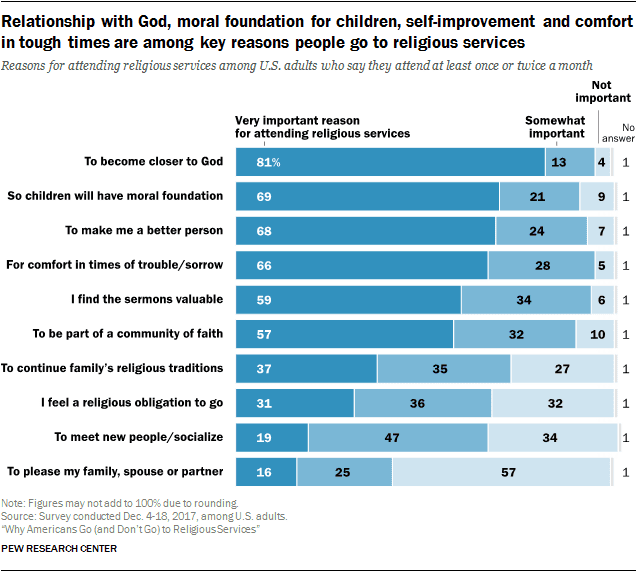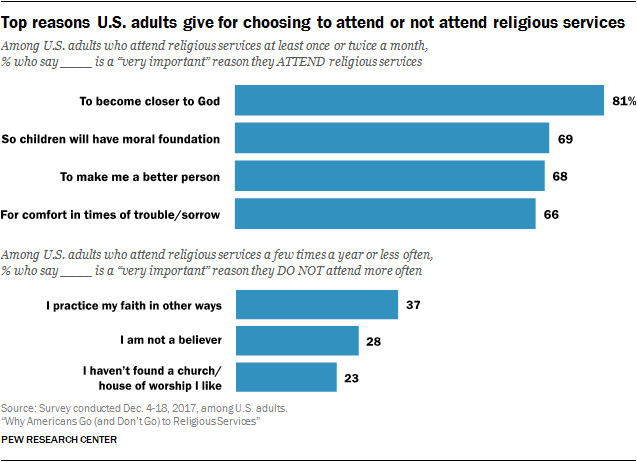The people who don’t go to church often cite personal, not spiritual, reasons for staying away. That’s a conclusion from a new Pew Research study.
The most often given reason why people don’t attend church is because they practice their faith in other ways.
By their own description, those who cite reasons other than a lack of belief for avoiding church are a fairly religious group. About 7 in 10 identify with a religion (including 6 in 10 who are Christian), and most say religion is either “very” or “somewhat” important in their lives.
Another 23 percent cite personal preferences for keeping them away. For example, they haven’t found a house of worship they like, or they don’t like the sermons.
Still others (22 percent) name logistical reasons, like being in poor health or not having the time to go, as very important reasons for not regularly attending religious services.
Three in 10 say they do not go to religious services because they are not believers.
Study Identifies People Who Don’t Go to Church
Fully a quarter of those who infrequently attend religious services say no particular reason can be characterized “very important” for their non-attendance.
Demographically, more than half of those who do not attend church for reasons other than non-belief are women, and they tend to be older and less highly educated compared with those who do not go because of a lack of faith. Meanwhile, those who refrain from attending religious services because they are non-believers are more highly educated and largely male, young and Democrats.
The survey also asked respondents the reason they attend religious services at least once or twice per month.
By far, the largest group (80 percent) say becoming “closer to God” is a very important reason they go to religious services.
Roughly two-thirds say they attend religious services to give their children a moral foundation, to become better people, and for comfort in times of trouble or sorrow. Smaller majorities say that valuable sermons and being part of “a community of faith” are very important reasons for their regular religious attendance.

Other findings from the survey include:
Eight in 10 regular attenders say they “always” or “often” experience a sense of God’s presence when they attend worship services. Nearly three-quarters say they “always” or “often” feel a sense of community with people who share their religion when they attend religious services, and 6 in 10 say they feel a sense of connection to a longstanding tradition.
Among those who attend church regularly, Protestants are roughly twice as likely as Catholics (71 percent vs. 36 percent) to say valuable sermons are a very important reason.
Those who avoid religious services because they “practice their faith in other ways” are less involved in a variety of community, charitable and social groups than are those who attend religious services regularly.
And the people who say they practice their faith in other ways are far less religious, by a variety of traditional measures beyond worship attendance (including frequency of prayer, assessment of religion’s importance in one’s life, etc.), than those who attend religious services regularly.
In recent years, the percentage of U.S. adults who say they regularly attend religious services has been declining, while the share of Americans who attend only a few times a year, seldom or never has been growing.


